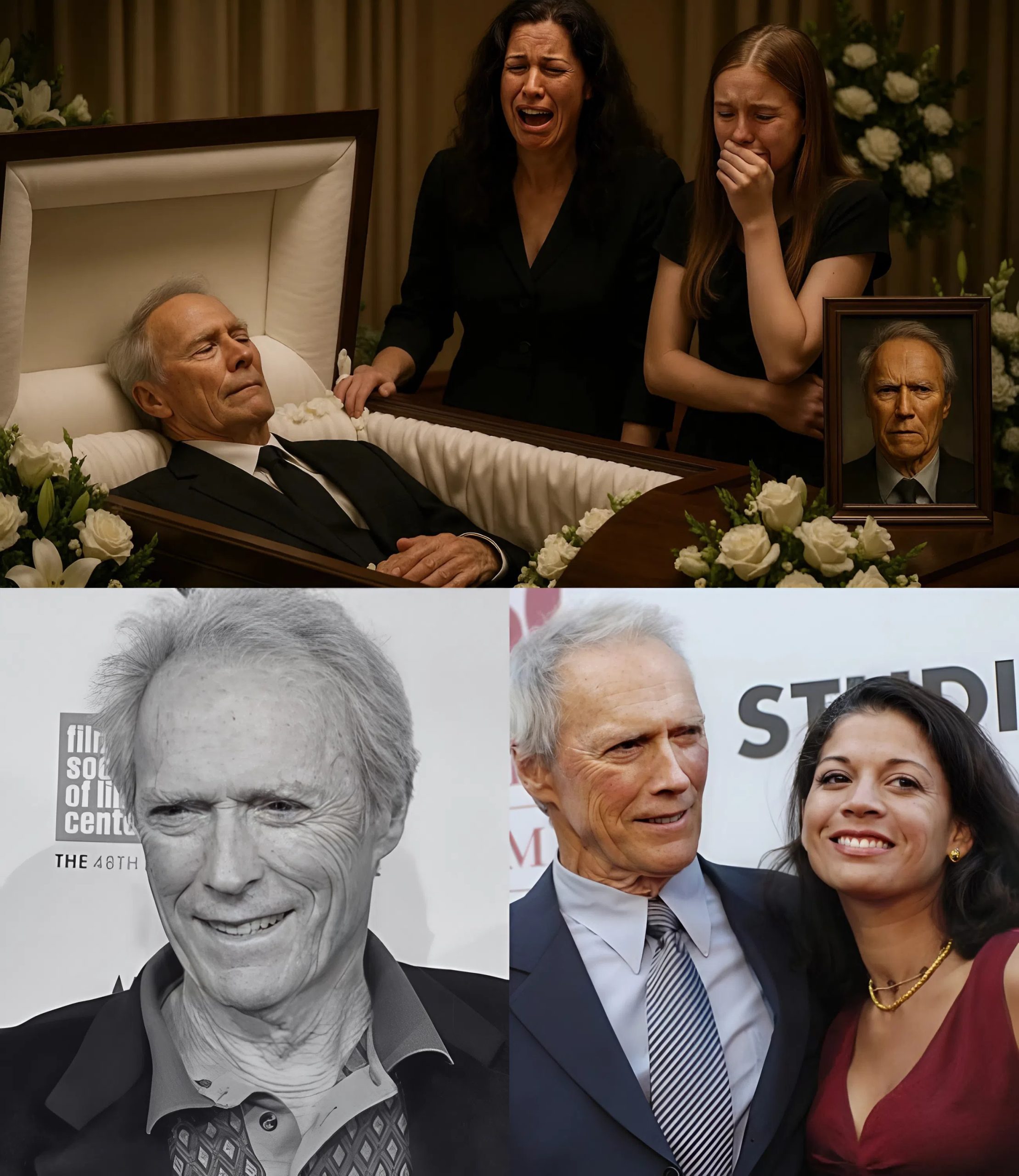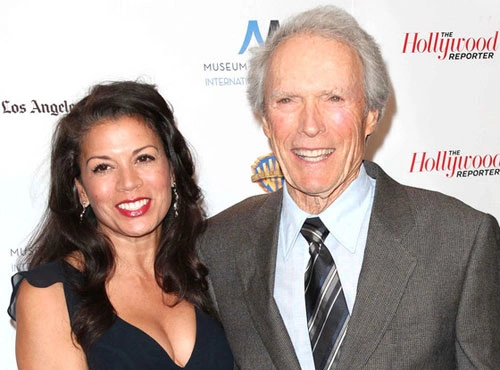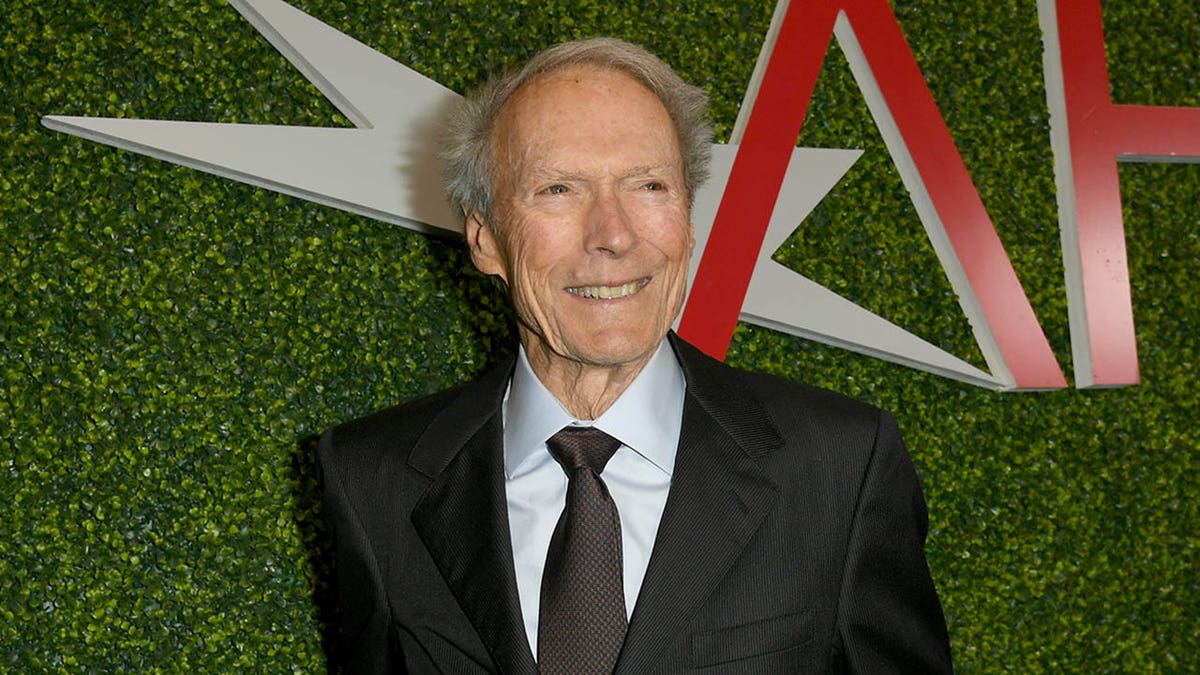For over six decades, Clint Eastwood has towered over Hollywood like a mythic figure — the squinting gunslinger, the silent lawman, the rugged individualist who embodied the American West. He was the kind of star who did not simply act in movies; he defined genres, reshaped cultural archetypes, and carried entire eras of cinema on his shoulders. But now, at ninety-five years old, the man once considered indestructible has suddenly vanished from public life.
His disappearance sparked rumors. His absence from award ceremonies, premieres, and even casual sightings in his beloved Carmel-by-the-Sea stirred questions: Where is Clint Eastwood? Why has Hollywood’s most enduring cowboy gone silent?
Just days later, the world received its first hint of truth. In a short but cryptic statement, Eastwood’s family admitted that he was “facing challenges that required privacy” and asked the public for understanding. The vagueness only fueled speculation. But now, heartbreaking news has emerged: Clint Eastwood has been battling a severe, debilitating illness that has left him fragile, weakened, and confined away from the public eye.

The Silence of a Legend
Clint Eastwood was never just another actor. From his early rise in Sergio Leone’s Dollars Trilogy — where the “Man with No Name” cemented his status as an antihero — to his directorial triumphs in films like Unforgiven, Million Dollar Baby, and Gran Torino, Eastwood became the very definition of Hollywood longevity.
But unlike many of his contemporaries, he avoided excess. He didn’t live loudly in the tabloids, preferring a quieter, more measured life. He worked relentlessly, often directing and starring in films into his late eighties and even nineties, defying the physical limitations that age imposes on most.
That’s why his sudden disappearance felt eerie. The cowboy who once strode across dusty landscapes now seemed to have ridden into the shadows without explanation.
The Family’s Cryptic Words
When Eastwood’s family finally broke their silence, the statement was short, careful, and deeply mysterious. It did not name the illness. It did not confirm his exact condition. Instead, it described the moment as “a time of reflection and care” and requested privacy “for the sake of peace and dignity.”
The wording was deliberate — neither confirming nor denying the gravity of the situation, but hinting at something profound. To many fans, it felt like a final curtain being drawn. And indeed, those close to the family have since admitted that Eastwood’s condition has become increasingly difficult, robbing the once indomitable actor of his trademark vitality.

The Weight of Vulnerability
The revelation has shaken the world not only because of Eastwood’s fame but because of what he represents. He was the mythic cowboy — the embodiment of stoic masculinity, the figure who rarely showed weakness on screen. From Dirty Harry to Josey Wales, he built an identity around toughness, grit, and an unyielding sense of justice.
Now, the man who so often played characters confronting mortality is himself confronting it in silence. For audiences who grew up idolizing him, this moment is not just about Eastwood the man; it is about the end of an era, the crumbling of a symbol of indestructibility.
Hollywood Responds
The news of Eastwood’s illness has rippled through Hollywood with palpable sadness. Directors he mentored, actors he inspired, and co-stars from decades past have spoken out.
Morgan Freeman, who shared the screen with him in Unforgiven and Million Dollar Baby, released a moving tribute: “Clint has always been more than a colleague. He is a mentor, a friend, and a giant. The thought of him weakened is hard to grasp, because he has always been strength itself.”
Younger actors, too, have acknowledged his influence. Bradley Cooper, who worked with Eastwood on American Sniper, called him “a once-in-a-century filmmaker, someone whose wisdom and artistry shaped me more than I can say.”
Hollywood, a place often defined by fleeting fame, is now reckoning with the frailty of one of its most enduring icons.
Fans’ Shock and Sorrow
Around the world, the response has been equally emotional. Fans are revisiting his vast body of work — from the Spaghetti Westerns of the 1960s to the Oscar-winning dramas of the 2000s — and flooding social media with clips, quotes, and prayers.
In Italy, where his career first exploded under Leone’s direction, film societies have announced screenings of A Fistful of Dollars in tribute. In Japan, where Eastwood’s minimalist acting style was long admired for its similarities to samurai cinema, newspapers have published essays about his influence on cross-cultural storytelling.

In America, ordinary fans are holding watch parties of his classics, sharing memories of fathers and grandfathers who introduced them to Eastwood films. For many, watching Clint Eastwood was not just entertainment — it was a rite of passage.
A Larger Cultural Moment
Eastwood’s illness also marks a cultural turning point. His generation — the last of Hollywood’s golden-age titans — is fading. The disappearance of stars like Eastwood is not just about personal health; it signals the end of a cinematic tradition built on archetypes of masculinity, independence, and moral conflict.
In today’s Hollywood, superheroes dominate, franchises reign, and antiheroes are often computer-generated. Eastwood, by contrast, was flesh and blood. His characters were flawed, grizzled, morally ambiguous — and deeply human. His disappearance forces us to ask: Who, if anyone, can fill that void?
The Man Behind the Myth
It is easy to forget that Clint Eastwood was not just an actor or director but also a mayor, a musician, a father of eight children, and a man who lived his life with surprising modesty despite global fame.
In Carmel, where he served as mayor in the 1980s, locals recall him as approachable and down-to-earth, someone who drank coffee in small diners and treated neighbors as equals. His private life, though occasionally tabloid fodder, was mostly defined by discipline and focus.
Those who know him best describe a man who lived according to the values he portrayed on screen: resilience, independence, and a refusal to bow to convention.
What Lies Ahead
The Eastwood family has not confirmed whether his condition is terminal, only that it is “serious” and that “time with family is now the greatest priority.” This phrasing suggests the end of public appearances, perhaps permanently.

If so, Eastwood’s final act may not be another film but a dignified retreat from the public stage he once dominated. And perhaps that, too, is fitting. The cowboy rides into the horizon not with fanfare but with silence — as he always did.
Conclusion: The Last Ride
Clint Eastwood’s disappearance and his family’s heartbreaking admission remind us that even the strongest icons cannot outpace time. His illness, though devastating, also offers a chance for reflection — on his unparalleled body of work, on the generations he shaped, and on the myth he created and sustained for so long.
The image of Eastwood — squinting under the blazing sun, hand hovering near a revolver, or standing silently as a man of principle in a corrupt world — will remain indelible. But now, we are reminded of the man beyond the myth: human, vulnerable, and mortal.
As fans mourn and Hollywood reflects, one truth endures. Clint Eastwood may no longer stride across the screen, but his shadow will forever loom large over cinema. He is the last great cowboy, and even in silence, he remains larger than life.